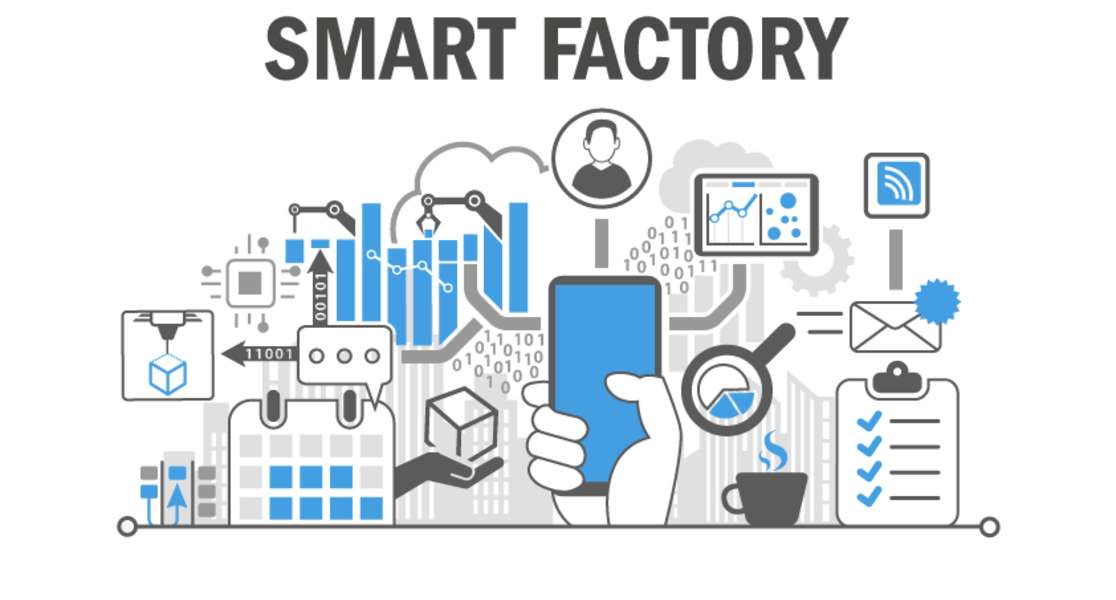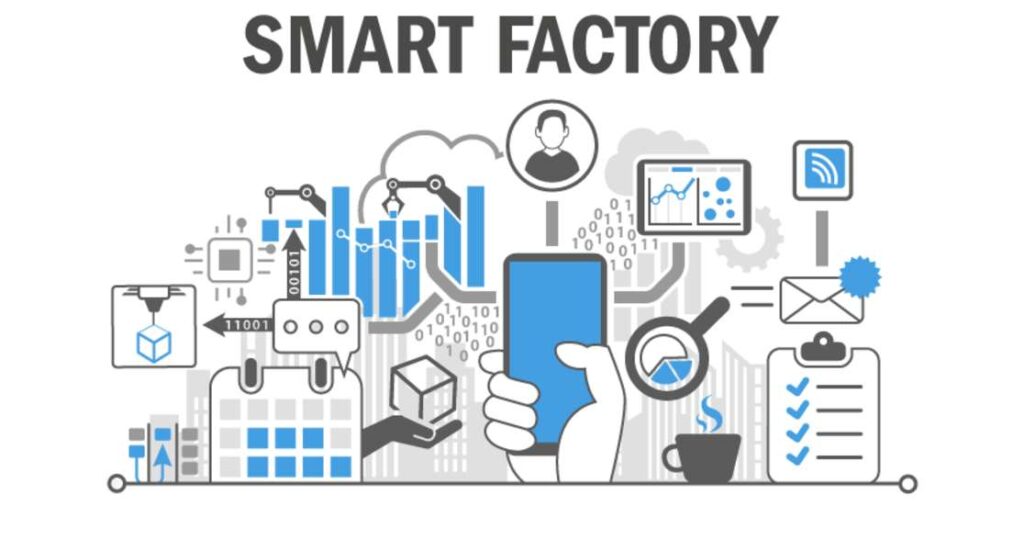Introduction
A smart factory, also known as an Industry 4.0 factory, refers to the application of advanced technologies and systems to transform traditional manufacturing processes into highly automated and intelligent systems. Smart factories leverage technologies such as the Internet of Things (IoT), artificial intelligence (AI), robotics, big data analytics, and cloud computing to create a more efficient and interconnected manufacturing environment.
The role of smart factories in revolutionizing manufacturing is significant. They offer numerous benefits, including:
- Increased productivity: Smart factories streamline production processes, automate repetitive tasks, and optimize resource allocation, leading to higher productivity levels.
- Improved quality control: By utilizing sensors and real-time monitoring, smart factories can detect defects or variations in product quality, enabling immediate corrective actions.
- Enhanced flexibility: Smart factories are highly adaptable and can quickly reconfigure production lines to accommodate changing demands and product variations.
- Reduced downtime: Predictive maintenance techniques in smart factories help identify potential equipment failures in advance, minimizing unplanned downtime.
- Optimized supply chain: Through data integration and analysis, smart factories enable better coordination and synchronization with suppliers, resulting in efficient inventory management and reduced lead times.
The revolutionizing impact of smart factories extends beyond individual manufacturing processes. It drives the transformation of the entire manufacturing ecosystem, fostering the emergence of new business models and supply chain dynamics. Furthermore, smart factories promote sustainability by minimizing waste, optimizing energy consumption, and supporting eco-friendly practices.
The Advantages of Integrating Industry 4.0 Technologies in Factories
Industry 4.0 is the term used to describe the fourth industrial revolution, which is characterized by the use of digital technologies such as artificial intelligence, internet of things, cloud computing, big data, and robotics to enhance the efficiency, productivity, and quality of manufacturing processes. Integrating Industry 4.0 technologies in factories can bring many advantages, such as:
- Reducing operational costs by optimizing resource utilization, minimizing waste, and improving energy efficiency.
- Increasing customer satisfaction by delivering customized products and services faster and with higher quality.
- Enhancing innovation and competitiveness by enabling data-driven decision making, agile product development, and continuous improvement.
- Improving worker safety and well-being by reducing human errors, automating hazardous tasks, and providing real-time feedback and training.
Therefore, integrating Industry 4.0 technologies in factories can help manufacturers achieve higher levels of performance and profitability in the rapidly changing global market.
Overcoming the Challenges of Implementing Smart Factory Technology

Smart factory technology is the use of advanced automation, data analytics, artificial intelligence, and other digital tools to optimize manufacturing processes and improve productivity, quality, and efficiency. However, implementing smart factory technology is not without challenges. Some of the common obstacles that manufacturers face are:
- Lack of skilled workers who can operate and maintain the new technology.
- High upfront costs and long payback periods for investing in smart factory equipment and software.
- Complexity and interoperability issues among different systems and devices.
- Data security and privacy risks associated with sharing sensitive information across the network.
- Resistance to change and cultural barriers within the organization.
To overcome these challenges, manufacturers need to adopt a strategic and holistic approach that involves:
- Assessing their current capabilities and needs, and identifying the most suitable smart factory solutions for their specific goals and challenges.
- Developing a clear business case and roadmap for implementing smart factory technology, and securing the necessary funding and support from stakeholders.
- Building a skilled and agile workforce that can adapt to the changing demands and opportunities of smart manufacturing.
- Establishing standards and protocols for data collection, analysis, sharing, and protection, and ensuring compliance with relevant regulations and best practices.
- Fostering a culture of innovation and collaboration that encourages continuous learning and improvement.
By overcoming these challenges, manufacturers can reap the benefits of smart factory technology, such as increased productivity, quality, efficiency, flexibility, sustainability, and competitiveness.
Successful Examples of Smart Factories and Their Positive Impact on Manufacturing
Smart factories are manufacturing facilities that use advanced technologies such as artificial intelligence, robotics, internet of things, big data and cloud computing to optimize production processes, improve product quality, reduce costs and enhance sustainability. Smart factories can also adapt to changing customer demands, market conditions and environmental factors. In this article, we will present some successful examples of smart factories and their positive impact on manufacturing.
The Opportunities and Benefits of Smart Factories for SMEs
Smart factories are the future of manufacturing. They use advanced technologies such as artificial intelligence, robotics, big data, and cloud computing to optimize production processes, reduce costs, improve quality, and increase customer satisfaction. Smart factories can also enable SMEs (small and medium-sized enterprises) to compete with larger and more established players in the global market.
Some of the opportunities and benefits of smart factories for SMEs are:
- Increased productivity and efficiency: Smart factories can automate repetitive and tedious tasks, monitor and control operations in real-time, and optimize resource allocation and scheduling. This can result in higher output, lower waste, and faster delivery.
- Enhanced innovation and competitiveness: Smart factories can foster a culture of innovation and learning by providing access to data and insights, enabling collaboration and communication, and supporting experimentation and testing. This can help SMEs to develop new products and services, improve existing ones, and adapt to changing customer needs and preferences.
- Reduced risks and costs: Smart factories can reduce operational risks and costs by preventing errors, defects, breakdowns, and accidents, improving safety and security, and complying with regulations and standards. They can also reduce environmental impact by minimizing energy consumption, emissions, and waste.
Therefore, smart factories can offer significant opportunities and benefits for SMEs that want to grow their business, enhance their performance, and achieve their goals.
Conclusion
In conclusion, the integration of smart technologies in the manufacturing industry has resulted in the emergence of smart factories, which are transforming production processes and procedures. The use of advanced technologies such as IoT, AI, and Big Data in smart factories has enabled manufacturers to optimize their operations, reduce costs, and enhance efficiency. Smart factories have also improved the quality of products and have enabled manufacturers to adapt more easily to changes in demand. The potential benefits of smart factories are significant and will continue to revolutionize the manufacturing industry in the years to come.

